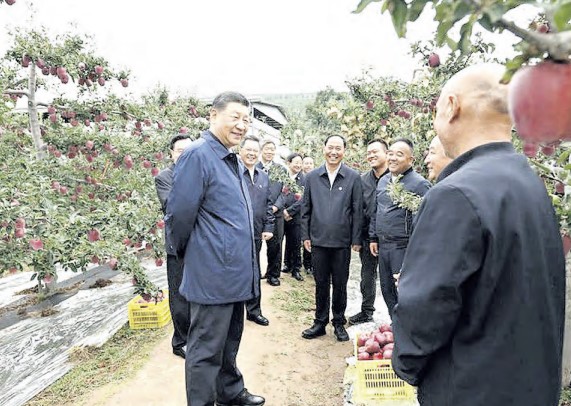
In the early 1980s, China’s GDP per capita was lower than that of Africa and India’s.
However, 20 years later, it had doubled that of India, and today it has far surpassed that of Africa.
As it marks 75 years since the founding of the People’s Republic of China this month, Beijing has emerged as a superpower, reshaping the global order.
Africa, meanwhile, continues to lag behind in development.
A recent World Bank report indicates the world’s poorest people live in Africa, particularly in Sub-Saharan Africa. Despite the continent’s abundant natural resources, many people live on less than two US dollars a day.
Instability in several African countries contrasts sharply with China’s political stability, a key factor in its economic growth and rise in per capita income.
Unlike African countries, which often adopt development strategies from their former colonisers, China has charted its own unique path.
This approach has enabled the country to successfully reduce poverty.
China’s poverty alleviation efforts have focused on increasing rural household income by promoting non-agricultural jobs, enhancing agricultural productivity, and investing in rural infrastructure.
A 2022 World Bank report recognises China’s success was based on two pillars: broad-based economic transformation, which opened new economic opportunities and raised average incomes, and targeted support to alleviate persistent poverty, initially in geographically disadvantaged areas and later at the household level.
The United Nations reports that more than 800 million people worldwide live in poverty. It also acknowledges China’s significant achievement of lifting nearly the same number out of poverty in the past 40 years.
To achieve a poverty-free world by 2030, more than 100 million people must be lifted out of poverty each year, especially in regions like South Asia and Sub-Saharan Africa.
These regions can learn from China’s success in eradicating poverty in less than four decades.
According to a recent report from the Chinese government, the number of people living in poverty dropped from 98 million in 2012 to 16 million in 2018.
This achievement is largely attributed to accelerated infrastructure development in poverty-stricken rural areas, where 208,000km of roads were constructed or renovated, and internet networks were modernised. China also focused on providing and renovating housing for the poor
One successful initiative allowed local governments to take affordable loans to purchase houses from private developers, which were then sold to citizens under favourable terms.
This model is something Kenya, which is currently rolling out an affordable housing programme, could learn from, instead of its current model, which has faced legal challenges.
Since the early 1990s, China has also fought corruption, rewarding government officials who efficiently manage public funds, thereby attracting investment to fuel economic growth.
The country has promoted devolution, giving local governments greater power to make decisions and attract investments.
China remains a global leader in poverty reduction and stronger health outcomes. Countries facing high poverty rates, such as Mozambique, South Sudan, Malawi, Kenya, Ethiopia, Nigeria, South Africa, Bangladesh, and India, should consider China’s achievements.
They should strengthen multilateral cooperation with China, particularly through the Belt and Road Initiative, to address poverty.
Despite Africa’s vast natural resources, many countries remain underdeveloped. Kenya, for example, still struggles with deep-rooted poverty.
Poverty in Africa contributes to hunger, disease and poor living conditions, often linked to the legacy of West colonialism. Since gaining independence, African countries have relied heavily on foreign aid, particularly from the West.
This dependency has fostered a culture of paternalism, with Western donors often dictating the terms of governance and development.
While foreign aid was intended to stimulate local economies and reduce dependency, it has often served as a tool for Western influence.
Recipients of Western aid are frequently subjected to conditions regarding elections, governance and trade. Countries that do not align with Western preferences, face sanctions and travel advisories.
The reality is that poverty prevents many Africans from accessing healthcare and education, making it difficult to escape the cycle of poverty.
Poor health reduces one’s ability to work, while inadequate education leaves many vulnerable to low-paying jobs in the informal sector.
China’s experience in poverty alleviation offers valuable lessons for developing countries striving to achieve the Sustainable Development Goals by 2030.
Onyango K'onyango is a journalist and communication consultant










